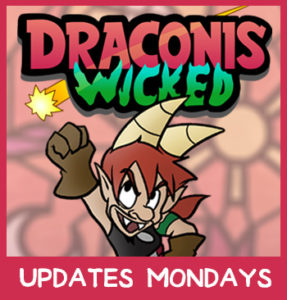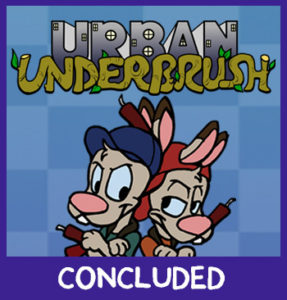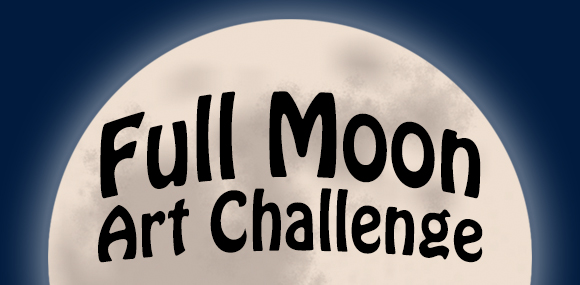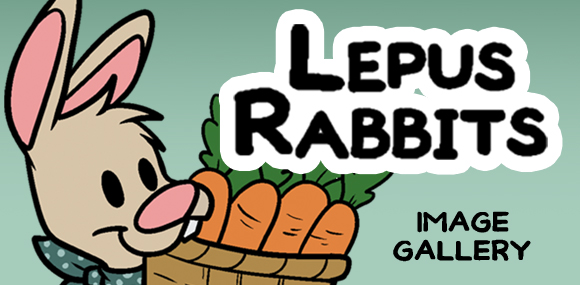Spoiler Alert: This is a reflection on Draconis Wicked, Chapter Seven. If you haven’t read the chapter yet, you may want to do that before reading the blog.
Judging by page views, comments, retweets, and so forth, you folks really liked Chapter Seven. You guys especially liked Jester. And Raia. And Jester and Raia together. Those scenes with the two of them in the tree got some of the best responses.
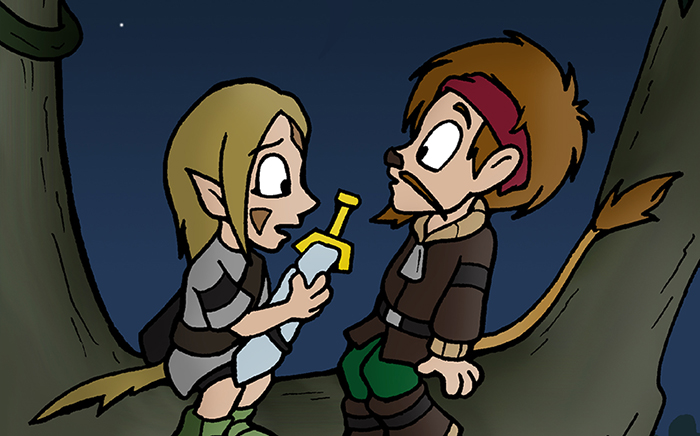
At first , I was a little reluctant to include the story of Jester and Raia. Jester is an almost stereotypical fantasy hero (almost), which makes Raia the damsel in distress. I’m a female author. I’ve made a fantasy world with almost perfect gender equality. I’ve publicly spoken about gender roles in literature. And here, I practically put a woman in the refrigerator.
Actually, in the earliest phases of drafting Draconis Wicked, this chapter was supposed to be a gender swap of the classic hero and damsel roles. In the first draft, Jester had switched places with Lyric the spellcaster. Lyric was the misfit warrior who had to save her injured boyfriend and prove her worth, while Jester was the one-armed sorcerer who had sworn vengeance against Malcorona and all who serve him. Amusingly enough, Warrior Lyric was still withdrawn and fierce, while Spellcaster Jester was still friendly and empathetic.
My sister, Emily, first suggested that Jester and Lyric switch places. She pointed out that too many of my female characters were playing noble, virtuous parts, while too many males were roguish and secretive. If Lyric were the spellcaster, she would be a dark female presence, and if Jester were the warrior, he might be the only completely honest male character (unless you count Saber).
Switching Lyric and Jester improved both their characters and it definitely improved the balance among all the characters, but it meant giving up on the gender-swapped damsel in distress story I had originally wanted. Ultimately, I decided that these sub-plots had to bow in service to the bigger story. Besides, I didn’t want to fall into the reverse-sexism trap of thinking that it’s fine for male characters to be helpless, but not fine for females to be in the same spot. Sure, girls shouldn’t always be damsels, but that doesn’t mean they can never be damsels either.
But readers didn’t seem so concerned with the gender roles. Readers seemed much more concerned with the discrimination and bigotry. The idea that Jester lived his life being treated as a second-class citizen by the people who raised him evoked some emotions. As I wrote this chapter, I wanted people to understand that the Alpha Lupine Warriors were generally not bad people. They were still hardworking, disciplined warriors who genuinely cared about protecting the kingdom. Their prejudice is the only flaw in an otherwise upstanding group of people. But we can’t overlook it, because it’s a pretty big flaw. It is one of my longest-held beliefs that making exceptions – inventing reasons why some people are not entitled to the same base level of respect – is the biggest cause of bullying. It’s the reason why some people can be excessively kind in most walks of life, then turn all their fury on one person or group. And the worst part of these situations is that when the victims see otherwise good people only act like jerks them, the victims often assume that they are the ones at fault. That’s clearly what’s happen to Jester, who thinks he doesn’t deserve any more respect than the little he’s getting. I suspect that people became attached to Raia because she was the only one who figured out that Jester should receive better treatment.
So, yeah, a lot of heavy stuff went down in Chapter Seven. The next few chapters are going to dive into more personal conflicts, which should give us some time to digest some of these social conflicts.
-Marj


